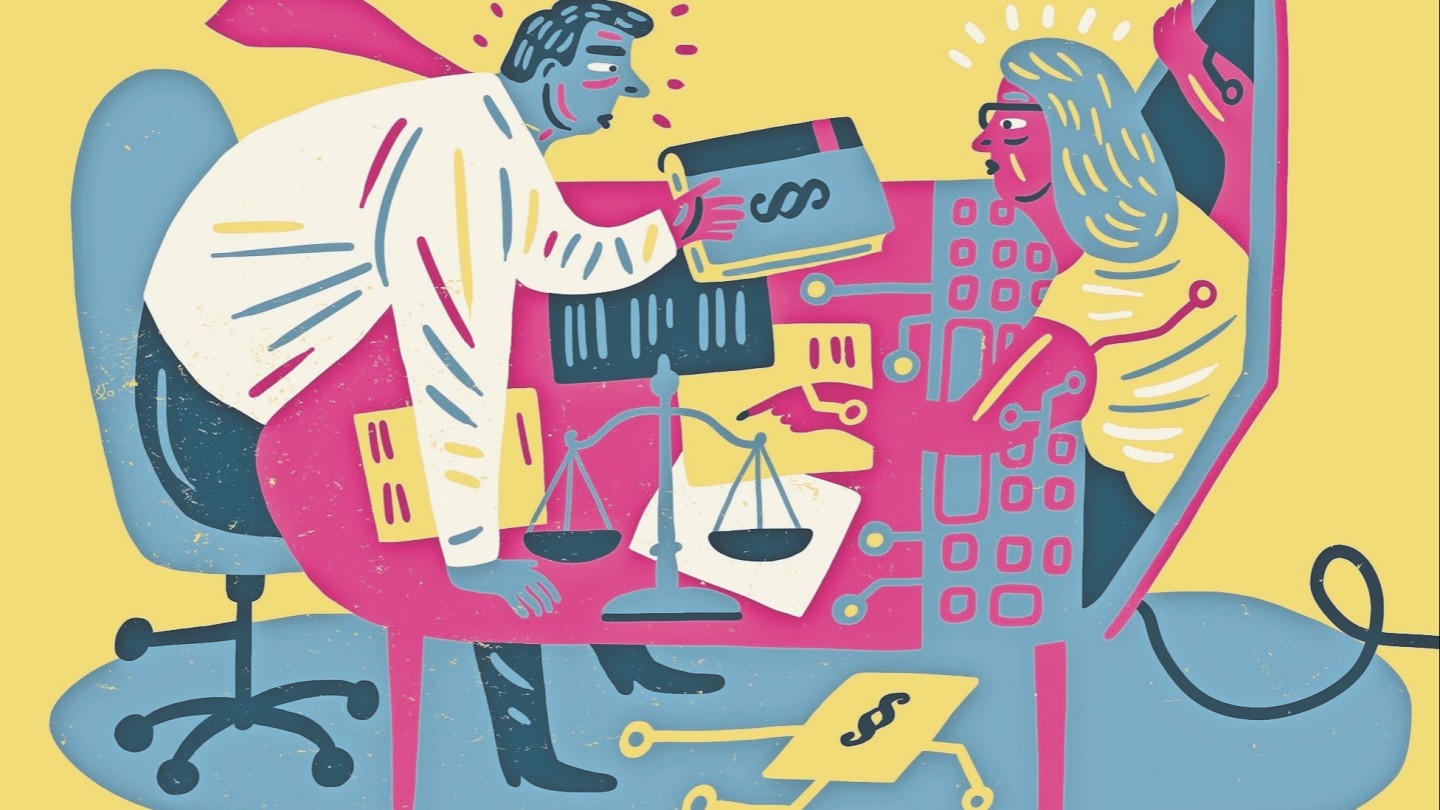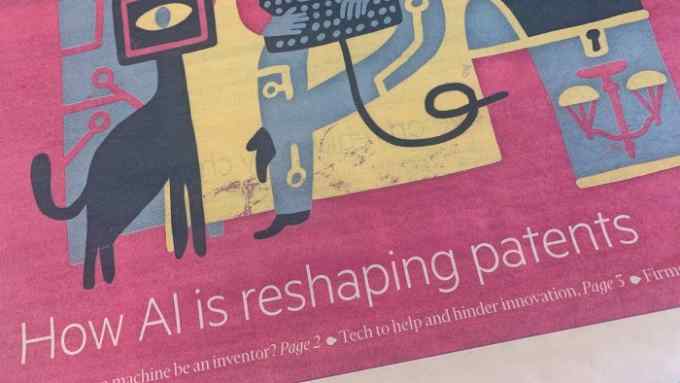Rapid advances in AI set to upend intellectual property

Roula Khalaf, Editor of the FT, selects her favourite stories in this weekly newsletter.
Rapid advances in artificial intelligence chatbots are challenging centuries-old principles in intellectual property — and prompting calls for changes to patent and copyright laws.
A new wave of powerful “generative” AI chatbots — such as ChatGPT from OpenAI and Google’s Bard, both of which can produce plausible text and images in response to conversational prompts — has given fresh urgency to ongoing debates in the legal profession and wider society. Should an AI system be considered an inventor and granted a patent for its invention? And how should regulators respond to copyrighted material being fed into AI systems?
Stephen Thaler, a US-based AI expert, has been at the forefront of the debate after he filed two patent applications that named his AI machine Dabus as the inventor of a food container capable of changing shape, and of a flashing light. He has brought legal challenges against IP offices around the world after they rejected his applications and ruled that an AI system cannot be named as the inventor on a patent.
The European Patent Office seems to agree. Its spokesman, Luis Berenguer, says that, for the foreseeable future, AI will remain “mainly a tool for a human inventor”.
Thaler has had some success, however. In 2021, Australia’s Federal Court ruled that Dabus can be an inventor for the purposes of Australian law. And, in South Africa, Thaler has obtained a patent listing Dabus as the inventor. He is waiting to hear the verdict of the UK Supreme Court.
“There must be some concessions, otherwise AI systems will be conceiving inventions in the shadows as humans falsely claim authorship and accusations of cheating fly,” Thaler told the Financial Times.
Some lawyers say he has a point. Companies are increasing investment in AI and using it to create inventions. And they want to protect the resulting IP, which can be used to secure more investment. The logical response, they argue, is to change IP law so that AI can either be listed as either the inventor of a patent, or the co-inventor.
“It’s unfeasible to keep AI out from the patent system in the long run,” says Bernd Holzgartner, a partner at 2SPL, a German patent law firm. “The current legal framework was not made for this situation and high degree of uncertainty.”
He adds, however, that any change to AI and patent law may take longer than two to three years because patent law “always evolves slowly”.
First, courts must be convinced that the AI system, rather than the human, is in control. And, despite rapid advances in generative AI systems since late last year, experts say that it still requires considerable human guidance — for example, data scientists entering “prompts” or instructions.
But, if AI does become capable of developing patentable inventions with negligible human input, would that make patents, which are designed to spur human innovation and economic growth, irrelevant?
“If AI makes everything so easy to invent . . . if it’s just a case of clicking a button and everyone has access to it, in theory, policymakers may decide that they don’t need to grant patents,” says Mike Williams, partner and AI specialist at Marks & Clerk, an intellectual property law firm.
Elsewhere in IP, litigation over AI is also increasing.
One of the most high-profile legal cases is between picture agency Getty Images and Stability AI, an AI company. In a case filed in London’s High Court, in January, Getty Images claimed that Stability AI, had “unlawfully copied and processed millions of images protected by [its] copyright . . . to benefit Stability AI’s commercial interests and to the detriment of the content creators”.
One possible industry-wide compromise could be a collective licensing scheme, whereby AI companies pay artists to compensate them for using their copyrighted data to train AI systems, suggests Noam Shemtov, professor of intellectual property and technology law at Queen Mary University of London.
Such a scheme would be similar to the licence fee paid by restaurants, cafés, hotels and other businesses to play music to the public.
For their part, large AI companies are hopeful that a legal balance can be struck between the benefits of AI and the rights of copyright holders.
“Copyright and IP law has adapted to new technology in the past and we believe it will do the same with AI,” says OpenAI. “We want everyone to benefit from AI technology and are working with creators, rights owners, policymakers, academics, and other stakeholders on these issues.”
Given how fast AI is changing, IP law may be playing catching up for some time.
Holzgartner, of 2SPL, likens the use of AI in intellectual property to a painting that has only just been started.
“So far, we have a white canvas, with maybe two or three lines drawn on it. We are far away from having a complete picture . . . on how to handle things.”

Comments